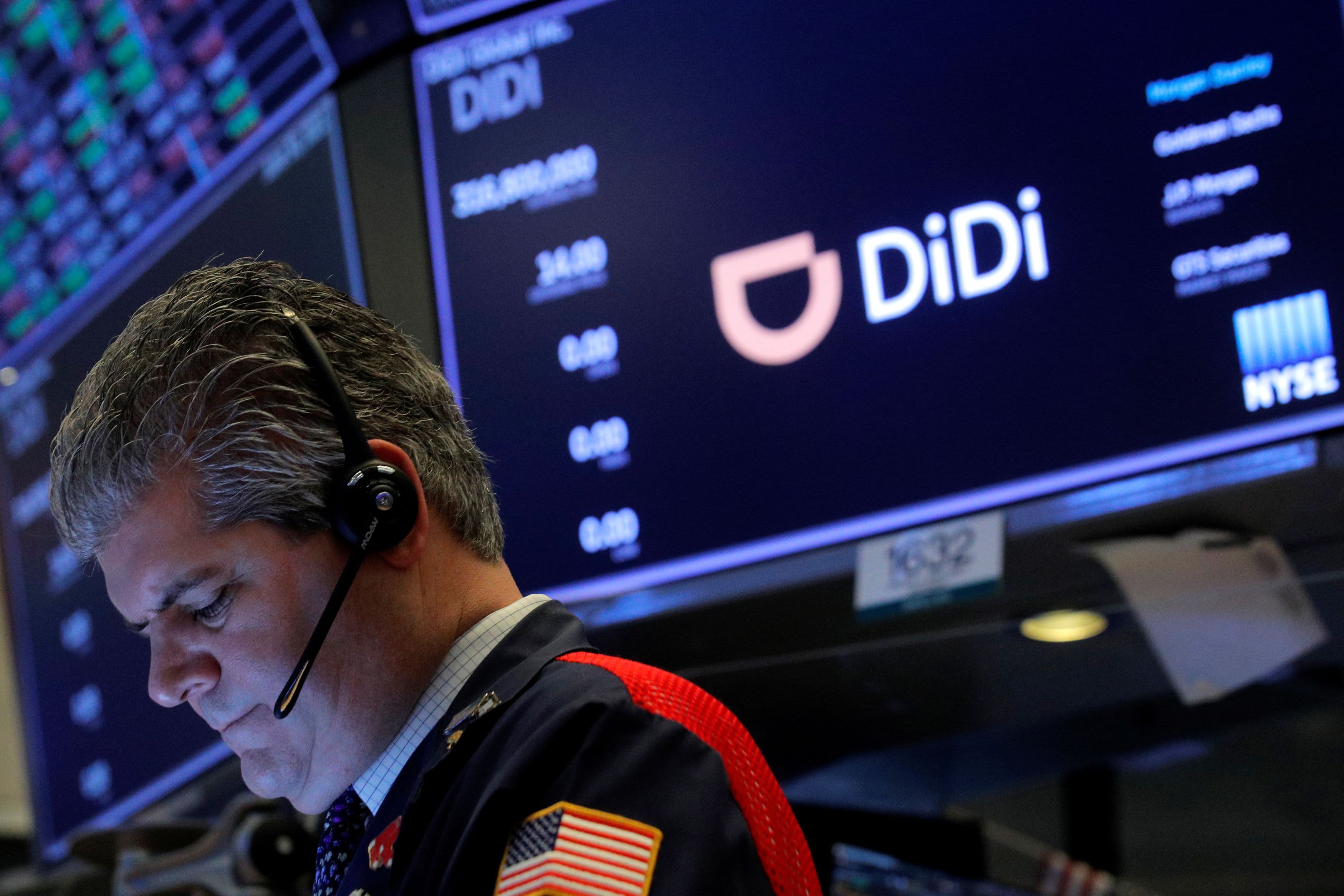Shares in ride-hailing giant Didi Chuxing crashed as much as 25% in pre-market trading on Tuesday, less than a week after the Chinese app listed on the New York Stock Exchange.
The company’s share price fell to $12.06 at 4:46 a.m. Tuesday in pre-market trading, down from $15.53 at the last market close.
The fall comes after China announced late Friday that new users in the country would not be able to download the app while it conducts a cybersecurity review of the company.
Traders, who couldn’t buy or sell the stock on Monday as markets were closed, reacted to the news Tuesday.
Didi listed on the NYSE last Wednesday with a market cap of around $68 billion. Stock in the company rose nearly 16% on Thursday and fell just over 5% on Friday.
Tuesday’s pre-market slide in Didi’s share price comes after The Wall Street Journal on Monday, citing people familiar with the matter, reported that Didi was advised by Chinese regulators to postpone its U.S. listing and review its network security several weeks before it went public.
Didi did not immediately respond to a CNBC request for comment.
Kendra Schaefer, a partner at Beijing-based strategic advisory consultancy Trivium China, told CNBC’s “Squawk Box Europe” on Tuesday that Didi “definitely should have considered pulling the IPO.
She added that companies like Didi have huge government relations departments that are regularly in contact with regulators.
Regulators may not have given Didi “a clear directive,” she said, adding that “it is absolutely possible that Didi wasn’t really sure which way to jump and facing investor pressure they decided to just go for it.”
China is starting to crack down on its tech titans after years of relatively little regulation. After announcing its Didi probe, Chinese regulators also opened cybersecurity reviews into U.S.-listed Boss Zhipin and subsidiaries of Full Truck Alliance.
In June, Reuters reported that Chinese regulators were probing Didi for antitrust violations. Beijing is also reportedly looking into the company’s pricing mechanism.
Didi warned in its IPO prospectus that it could be penalized by dissatisfied regulators.
“We cannot assure you that the regulatory authorities will be satisfied with our self-inspection results or that we will not be subject to any penalty with respect to any violations of anti-monopoly, anti-unfair competition, pricing, advertisement, privacy protection, food safety, product quality, tax and other related laws and regulations. We expect that these areas will receive greater and continued attention and scrutiny from regulators and the general public going forward,” the company said in its prospectus.
Founded in 2012, Didi said it has 493 million annual active riders, and 41 million average daily transactions. It began expanding internationally in 2018, and the company now operates in 14 countries outside of China.
In addition to traditional ride-hailing, Didi is heavily invested in making autonomous taxis a reality, and operates several segments around mobility.
— Additional reporting by Steve Kovach and Jessica Bursztynsky.
